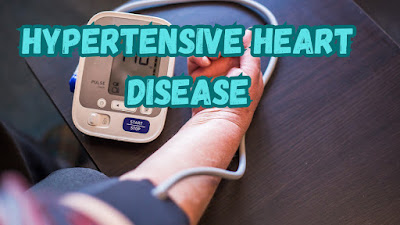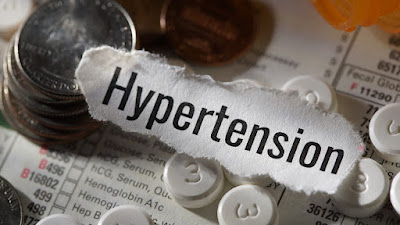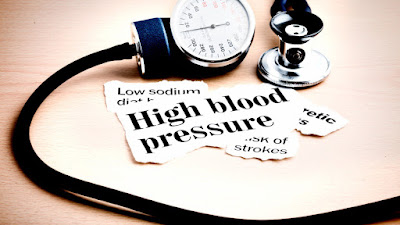 |
| Understanding Hypertensive Heart Disease - A Comprehensive Guide |
Hypertensive heart disease is a condition characterized by complications that occur when high blood pressure (hypertension) affects the heart. This chronic medical condition can lead to various heart-related issues, ranging from coronary artery disease to heart failure.
Causes and Risk Factors
High Blood Pressure: The Primary Culprit
Hypertensive heart disease primarily stems from prolonged high blood pressure. When the force of blood against the artery walls is consistently elevated, it puts undue strain on the heart, leading to detrimental effects over time.
Other Contributing Factors
In addition to high blood pressure, several other factors can increase the risk of developing hypertensive heart disease. These include obesity, smoking, excessive alcohol consumption, sedentary lifestyle, and genetics.
 |
| Understanding Hypertensive Heart Disease - A Comprehensive Guide |
Symptoms and Signs
Recognizing the Warning Signs
Symptoms of hypertensive heart disease may vary depending on the specific condition affecting the heart. Common signs include chest pain or discomfort, shortness of breath, fatigue, swelling in the legs or abdomen, and irregular heartbeat.
The Importance of Timely Diagnosis
Early detection of hypertensive heart disease is crucial for effective management and prevention of complications. Regular blood pressure monitoring and prompt medical evaluation are essential for identifying the condition at its onset.
Diagnostic Procedures
Tests and Screenings for Hypertensive Heart Disease
Diagnosis of hypertensive heart disease typically involves various diagnostic tests, including blood pressure measurements, electrocardiogram (ECG), echocardiogram, stress tests, and cardiac catheterization.
Interpretation of Results
Interpreting the results of diagnostic tests requires the expertise of healthcare professionals to assess the severity of heart involvement and formulate an appropriate treatment plan.
Treatment Options
Lifestyle Modifications
Implementing lifestyle changes is often the first line of defense against hypertensive heart disease. These may include adopting a heart-healthy diet, engaging in regular exercise, maintaining a healthy weight, limiting alcohol intake, and quitting smoking.
Medications for Blood Pressure Management
In cases where lifestyle modifications alone are insufficient to control blood pressure, various medications may be prescribed to lower blood pressure levels and alleviate strain on the heart.
Surgical Interventions
In severe cases or when complications arise, surgical interventions such as angioplasty, coronary artery bypass grafting (CABG), or valve repair may be necessary to restore proper heart function.
 |
| Understanding Hypertensive Heart Disease - A Comprehensive Guide |
Complications and Prognosis
Potential Risks and Complications
Untreated or poorly managed hypertensive heart disease can lead to serious complications, including heart attack, stroke, heart failure, arrhythmias, and sudden cardiac death.
Long-term Outlook
The prognosis for individuals with hypertensive heart disease depends on various factors, including the severity of the condition, response to treatment, adherence to lifestyle changes, and presence of coexisting medical conditions.
Preventive Measures
Strategies to Lower Risk
Preventing hypertensive heart disease involves adopting a heart-healthy lifestyle, including regular exercise, balanced diet, stress management, and avoiding tobacco and excessive alcohol consumption.
Importance of Regular Check-ups
Regular medical check-ups, including blood pressure monitoring and routine screenings, are essential for early detection of hypertension and timely intervention to prevent heart complications.
Living with Hypertensive Heart Disease
Tips for Managing Daily Life
Living with hypertensive heart disease requires careful management and adherence to treatment recommendations. This may include taking medications as prescribed, monitoring blood pressure regularly, maintaining a healthy lifestyle, and seeking medical attention for any concerning symptoms.
Support Networks and Resources
Having a strong support system of family, friends, and healthcare providers can greatly assist individuals in coping with the challenges of living with hypertensive heart disease. Support groups and educational resources can also provide valuable information and encouragement.
Impact on Mental Health
Addressing Emotional Well-being
The diagnosis and management of hypertensive heart disease can take a toll on mental health, leading to feelings of anxiety, depression, or stress. It's essential to address these emotional aspects of the condition and seek support when needed.
Coping Strategies
Engaging in stress-reducing activities such as meditation, yoga, or hobbies can help alleviate emotional distress associated with hypertensive heart disease. Open communication with loved ones and healthcare providers is also vital for maintaining emotional well-being.
Conclusion
In conclusion, hypertensive heart disease poses significant challenges to cardiovascular health, but with early detection, proper management, and lifestyle modifications, individuals can effectively mitigate risks and improve outcomes. By understanding the causes, symptoms, and treatment options available, individuals can take proactive steps to protect their heart health and enhance their overall well-being.
FAQs
What are the main causes of hypertensive heart disease?
Hypertensive heart disease is primarily caused by prolonged high blood pressure, which puts strain on the heart muscle and blood vessels.
Can hypertensive heart disease be prevented?
While certain risk factors such as genetics cannot be changed, adopting a healthy lifestyle including regular exercise, balanced diet, and stress management can help prevent or mitigate the effects of hypertensive heart disease.
How is hypertensive heart disease diagnosed?
Diagnosis typically involves blood pressure monitoring, electrocardiogram (ECG), echocardiogram, stress tests, and other cardiac imaging studies to assess heart function and detect any abnormalities.
What lifestyle changes can help manage hypertensive heart disease?
Lifestyle modifications such as maintaining a healthy weight, following a heart-healthy diet, limiting alcohol intake, quitting smoking, and engaging in regular exercise can help manage hypertensive heart disease.
What are the surgical options for treating hypertensive heart disease?
In severe cases or when complications arise, surgical interventions such as angioplasty, coronary artery bypass grafting (CABG), or valve repair may be necessary to restore proper heart function.
